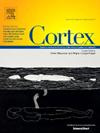Frontal midline theta power during the cue-target-interval reflects increased cognitive effort in rewarded task-switching
IF 3.2
2区 心理学
Q1 BEHAVIORAL SCIENCES
引用次数: 0
Abstract
Cognitive performance largely depends on how much effort is invested during task-execution. This also means that we rarely perform as good as we could. Cognitive effort is adjusted to the expected outcome of performance, meaning that it is driven by motivation. The results from recent studies suggest that the expenditure of cognitive control is particularly prone to being affected by modulations of cognitive effort. Although recent EEG studies investigated the neural underpinnings of the interaction of effort and control, reports on how cognitive effort is reflected by oscillatory activity of the EEG are quite sparse. It is the goal of the present study to bridge this gap by performing an exploratory analysis of high-density EEG data from a switching-task using manipulations of monetary incentives. A beamformer approach is used to localize the sensor-level effects in source-space. The results indicate that the manipulation of cognitive effort was successful. The participants reported significantly higher motivation and cognitive effort in high versus low reward trials. Performance was also significantly increased. The analysis of the EEG data revealed that the increase of cognitive effort was reflected by an increased mid-frontal theta activity during the cue-target interval, suggesting an increased use of proactive control. This interpretation is supported by the result from a regression analysis performed on single-trial data, showing higher mid-frontal theta power prior to target-onset being associated with faster responses. Alpha-desynchronization throughout the trial was also more pronounced in high reward trials, signaling a bias of attention towards the processing of external stimuli. Source reconstruction suggests that these effects are located in areas related to cognitive control, and visual processing.
线索-目标间期的额叶中线θ功率反映了在有回报的任务切换中认知努力的增加。
认知表现在很大程度上取决于任务执行过程中投入了多少精力。这也意味着,我们的表现很少会尽如人意。认知努力是根据绩效的预期结果进行调整的,这意味着认知努力是由动机驱动的。最近的研究结果表明,认知控制的支出特别容易受到认知努力调节的影响。虽然最近的脑电图研究调查了努力和控制相互作用的神经基础,但有关认知努力如何通过脑电图振荡活动反映出来的报告却非常少。本研究的目的就是通过对使用货币激励的切换任务中的高密度脑电图数据进行探索性分析,弥补这一空白。本研究采用波束成形器方法对源空间中的传感器级效应进行定位。结果表明,对认知努力的操纵是成功的。在高奖励与低奖励的试验中,参与者的动机和认知努力都明显增加。成绩也明显提高。对脑电图数据的分析表明,认知努力的增加反映在提示-目标间隔期间中额叶θ活动的增加,这表明主动控制的使用增加了。对单次试验数据进行回归分析的结果也支持这一解释,该结果显示,在目标开始前,中额θ功率越高,反应速度越快。在高奖励试验中,整个试验过程中的α不同步现象也更为明显,这表明注意力偏向于处理外部刺激。源重建表明,这些效应位于与认知控制和视觉处理相关的区域。
本文章由计算机程序翻译,如有差异,请以英文原文为准。
求助全文
约1分钟内获得全文
求助全文
来源期刊

Cortex
医学-行为科学
CiteScore
7.00
自引率
5.60%
发文量
250
审稿时长
74 days
期刊介绍:
CORTEX is an international journal devoted to the study of cognition and of the relationship between the nervous system and mental processes, particularly as these are reflected in the behaviour of patients with acquired brain lesions, normal volunteers, children with typical and atypical development, and in the activation of brain regions and systems as recorded by functional neuroimaging techniques. It was founded in 1964 by Ennio De Renzi.
 求助内容:
求助内容: 应助结果提醒方式:
应助结果提醒方式:


